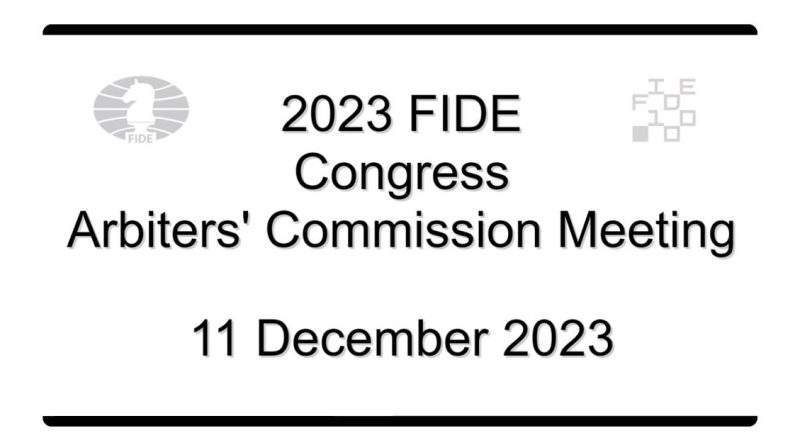A few weeks ago I wrote about my experience attending the 74th Internet-based FIDE Arbiters’ Seminar organized in early May by the European Chess Union. The course and final exam are a real challenge, and FIDE certainly doesn’t give away seminar norms!
WIth the ongoing COVID-19 pandemic, all seminars are being organized online. This has led to more courses, since arbiters don’t need to worry about travel expenses and logistics. I hope this factor leads to increased attendance as well.
Readers’ Mailbag
After seeing my earlier post, a reader sent me a question yesterday:
They asked not to be identified since they don’t want FIDE to think I’m giving unfair assistance (I’m not; I don’t know this person).
A prospective arbiter reaching out for advice is a very good sign. This eagerness suggests to me that the candidate will be successful in the course. Anyway, here’s my response:
You must be fluent with the material to pass the exam with 80%. From my previous post:
For USA participants: the biggest adjustment for USCF TDs working FIDE-rated events is being confident and ready to intervene in games. You can’t be afraid of making mistakes. As we say in New York City: If you see something, say something!
Other Things to Know for an online FIDE Arbiters’ Seminar
- How to make pairings under the FIDE Dutch System.
- The tiebreaks to apply under each tournament type, and how to calculate them.
- The meaning of the FIDE rating system, requirements for a player to receive an initial rating, and how to calculate the rating change of a player. For practice, go to the FIDE homepage, search for your favorite active player and study their recent tournament activity with rating changes.
- Regulations for direct titles, title norms, and title applications for players and arbiters. To practice: visit the titles page, study current applications and the norms that comprise them. Pay special attention to the numbers of rated and titled players, and host country/foreign opponents in a player’s schedule.
- Anti-cheating measures available to arbiters.
- Rules about default time, recording of moves, how games can conclude in wins or draws, and claims of all kinds.
Whew! That’s a Lot!
It is. Better to over-prepare than spend several days taking the course only to not pass and have to do it again! Keep in mind also that much of your two hours will be spent typing short answer responses to questions. Usually, you need to explain actions you would take containing several steps. Attention to detail is very important.
Good luck!
